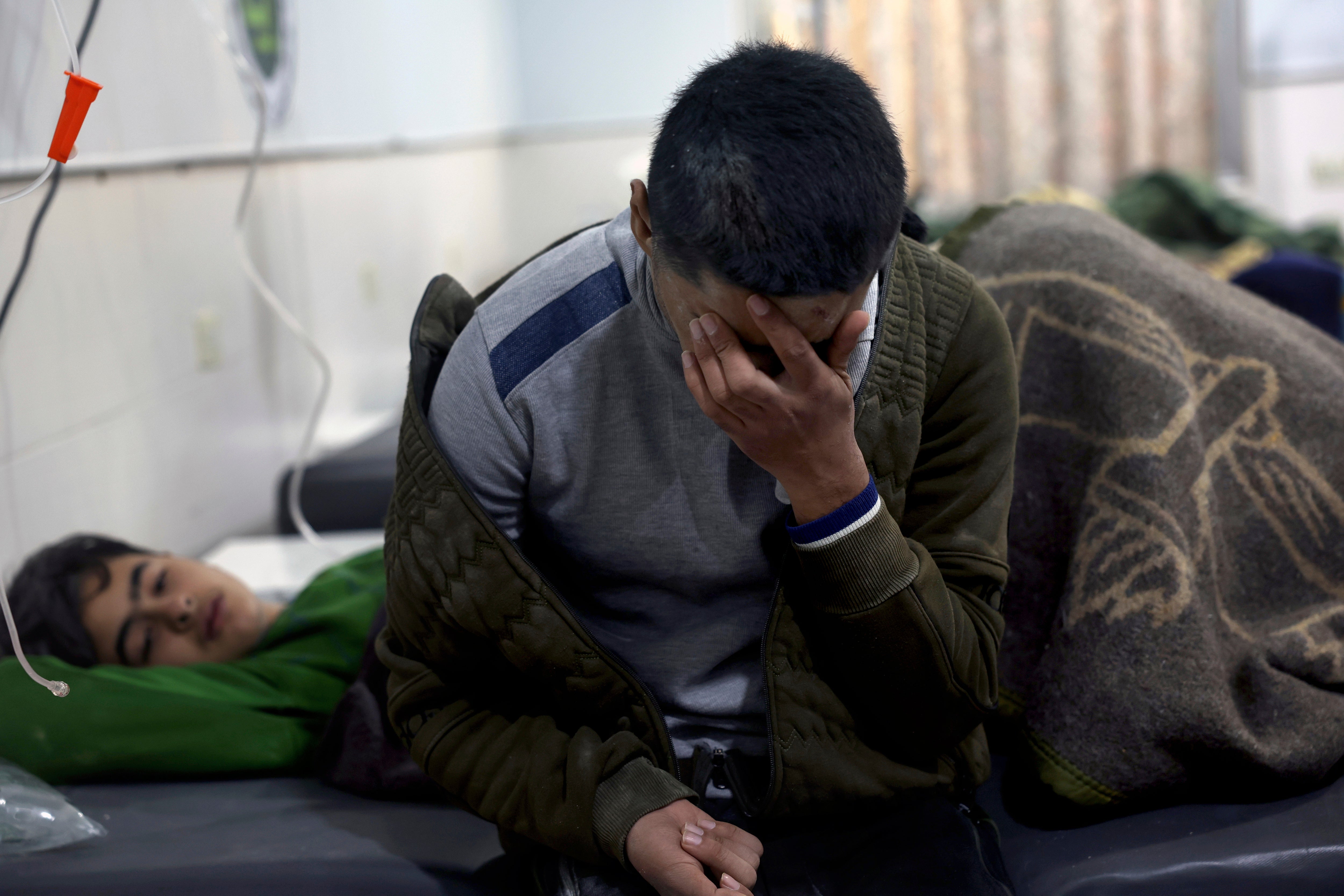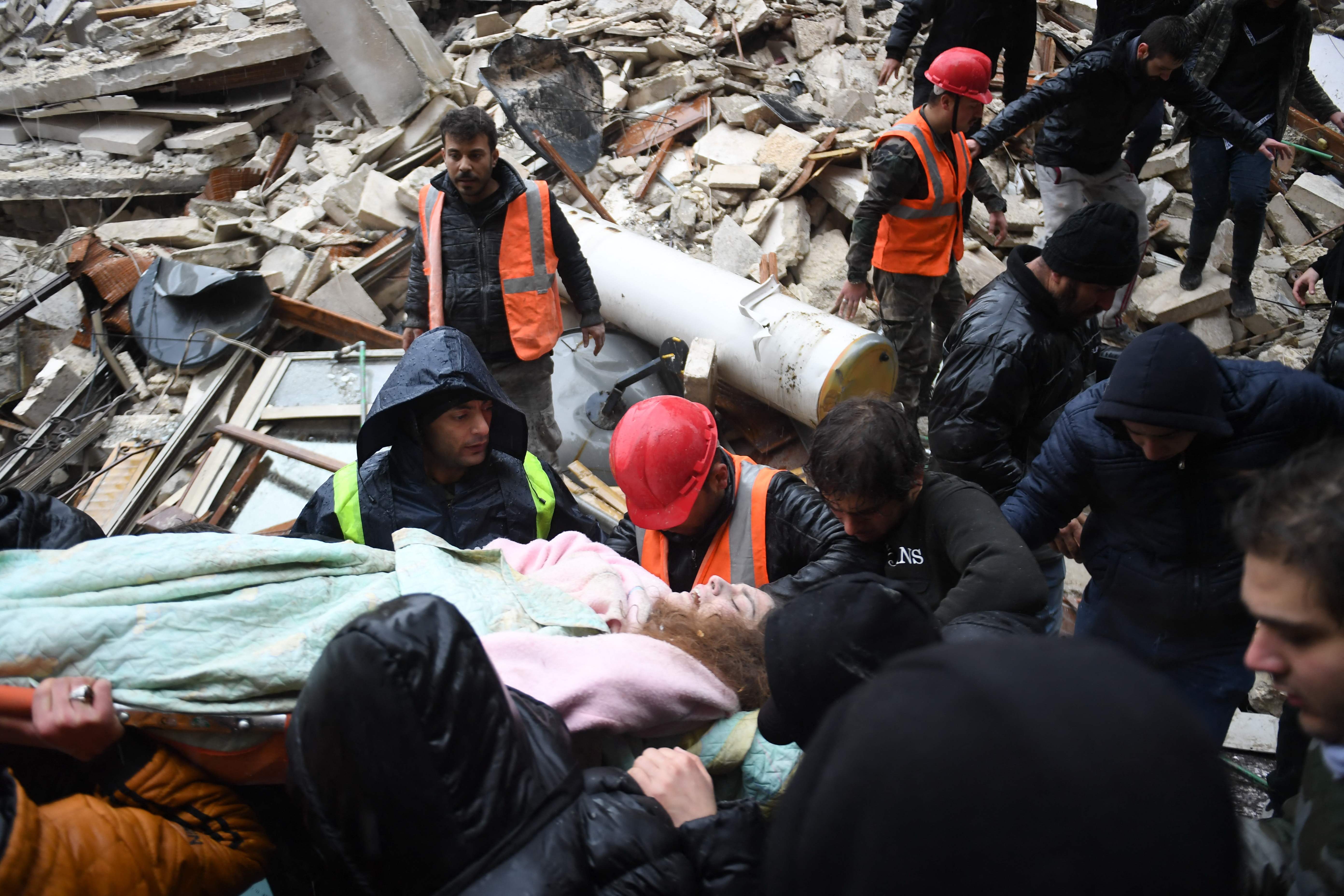Earthquake brings fresh hell for Syrians after more than a decade of civil war
Temperatures are plummeting and communities face acute fuel shortages with humanitarian assistance dwindling, writes Kim Sengupta. This is thanks – at least in part – to the war having faded in the minds of the Western public


Your support helps us to tell the story
From reproductive rights to climate change to Big Tech, The Independent is on the ground when the story is developing. Whether it's investigating the financials of Elon Musk's pro-Trump PAC or producing our latest documentary, 'The A Word', which shines a light on the American women fighting for reproductive rights, we know how important it is to parse out the facts from the messaging.
At such a critical moment in US history, we need reporters on the ground. Your donation allows us to keep sending journalists to speak to both sides of the story.
The Independent is trusted by Americans across the entire political spectrum. And unlike many other quality news outlets, we choose not to lock Americans out of our reporting and analysis with paywalls. We believe quality journalism should be available to everyone, paid for by those who can afford it.
Your support makes all the difference.The devastating 7.8 magnitude earthquake has brought more carnage to parts of Syria already facing massive destruction and great suffering during a decade of brutal civil war.
Shocking images have emerged of whole villages and hamlets flattened, with reports of dozens of families buried under the rubble – adding to a death toll of hundreds of bodies recovered from twisted piles of metal and concrete.
Some families in opposition-held regions have been living in homes half-destroyed during airstrikes by the forces of president Bashar al-Assad. Buildings that had been hastily erected in the years of conflict were the first to collapse as the earthquake and aftershocks tore through the country and neighbouring Turkey.
Follow the latest in our live blog here
More than 4 million people are packed into the remaining opposition-held enclaves of Syria, many displaced by fighting in other parts of the country, surrounded by the Russian-backed regime forces with frequent raids by warplanes.
Virtually nothing has been left standing in the wake of the earthquake in villages like Sarmada and Besania in the northwest. There has also been extensive damage to the towns of Azaz and Salquin, both key staging posts for rebels going from Turkey into Syria to fight regime forces during the battle for Aleppo in 2012. Access from the main cities to the affected areas has been made extremely difficult by fallen bridges and road subsidence.
Medical centres, already under pressure from lack of facilities and a rising number of patients before the earthquake, were quickly filled with the injured. Some, including a maternity clinic, had to be emptied with casualties pouring in by the hour.
Abdel Saad Hamoud, a teacher who fled to Idlib from Aleppo with his family when the city was retaken by Russian and Assad’s forces described the first wave of quakes like “feeling we are getting bombed again”.
“Everything, everything was shaking, plaster started falling from the ceiling and then a big noise, like a roar. I shouted to my wife to gather the children and we all managed to get out. Half the building fell away a bit later.”
Rescue workers who have worked through the civil war and Russian military intervention say the damage caused in some places has been equally severe, if not even more so. The White Helmets civil defence group said a “state of catastrophe” has befallen the people. “The death toll is expected to rise as hundreds of families are still trapped under rubble. Our rescue teams are providing response efforts,” it added.
The tremors have come as temperatures plummet, with communities already facing acute fuel shortages with humanitarian assistance dwindling as the situation in Syria fades in the Western public consciousness.
Chris Doyle, director of the Council for British Arab Understanding (CABU) said: “The world has ignored Syria for ages yet the suffering has been worse than ever. The conditions even without this earthquake were worse than during the war. Syrians have needed our help. These people have had over 10 years of war, bombings, a brutal regime, sanctions. It is winter, they have no fuel.”

The UK foreign secretary, James Cleverly, said that Britain would be sending aid, among the dozens of nations who have pledged support.
“The UK is sending immediate support to Turkey including a team of 76 search and rescue specialists, equipment and rescue dogs. In Syria, the UK-funded White Helmets have mobilised their resources to respond. We stand ready to provide further support as needed.” he said.
Israel, which has carried out frequent air strikes inside Syria, said it would be offering aid to the stricken areas. Prime minister Benjamin Netanyahu said: “I ordered to send, at the request of the Turkish government, rescue teams and medical aid. Since a request was also received to do this for many victims of the earthquake in Syria, I instructed to do this as well.” There was no immediate reaction from Damascus to the offer.
Humanitarian groups warned of the scale of the task ahead in Syria. Tanya Evans, country director for the International Rescue Committee (IRC) aid organisation said: “This earthquake is yet another devastating blow to so many vulnerable populations already struggling after years of conflict. It is a crisis within multiple crises – temperatures are plummeting to below zero leaving thousands exposed.
“Women and children will find themselves particularly at risk of exploitation and abuse should they find themselves once again displaced. Many in northwest Syria have been displaced up to 20 times and with health facilities strained beyond capacity, even before this tragedy many did not have access to the health care they critically need.”



Join our commenting forum
Join thought-provoking conversations, follow other Independent readers and see their replies
Comments